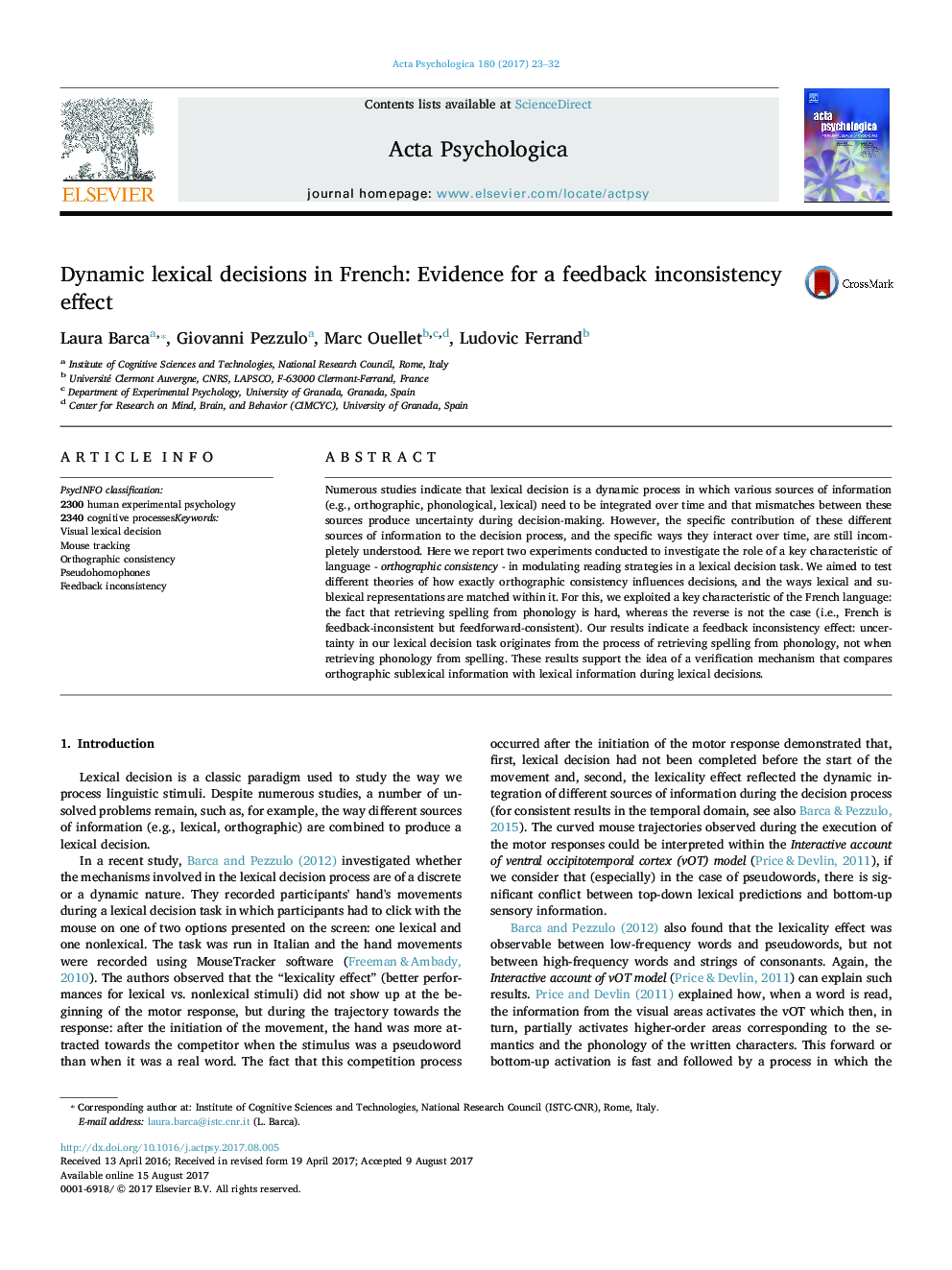| Article ID | Journal | Published Year | Pages | File Type |
|---|---|---|---|---|
| 5040179 | Acta Psychologica | 2017 | 10 Pages |
â¢Lexical decision is a dynamical process integrating various sources of information over time.â¢Mismatches between sources of information produce uncertainty during the choice.â¢We investigate the role of orthographic depth in shaping mouse trajectories the choice.â¢A feedback inconsistency effect modulates response time and mouse trajectories.â¢Uncertainty in our task might originate from the retrieval of spelling from phonology.
Numerous studies indicate that lexical decision is a dynamic process in which various sources of information (e.g., orthographic, phonological, lexical) need to be integrated over time and that mismatches between these sources produce uncertainty during decision-making. However, the specific contribution of these different sources of information to the decision process, and the specific ways they interact over time, are still incompletely understood. Here we report two experiments conducted to investigate the role of a key characteristic of language - orthographic consistency - in modulating reading strategies in a lexical decision task. We aimed to test different theories of how exactly orthographic consistency influences decisions, and the ways lexical and sublexical representations are matched within it. For this, we exploited a key characteristic of the French language: the fact that retrieving spelling from phonology is hard, whereas the reverse is not the case (i.e., French is feedback-inconsistent but feedforward-consistent). Our results indicate a feedback inconsistency effect: uncertainty in our lexical decision task originates from the process of retrieving spelling from phonology, not when retrieving phonology from spelling. These results support the idea of a verification mechanism that compares orthographic sublexical information with lexical information during lexical decisions.
